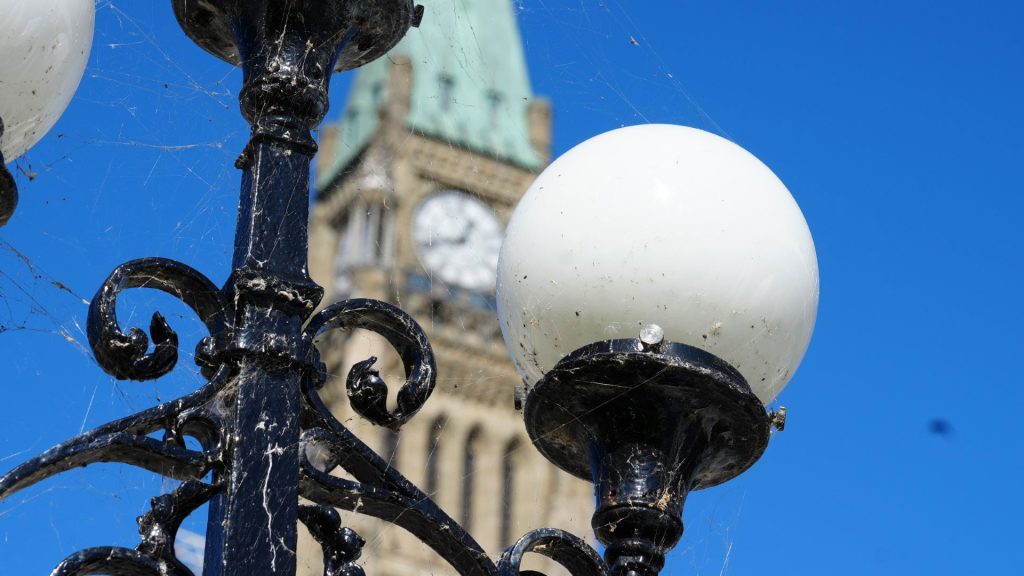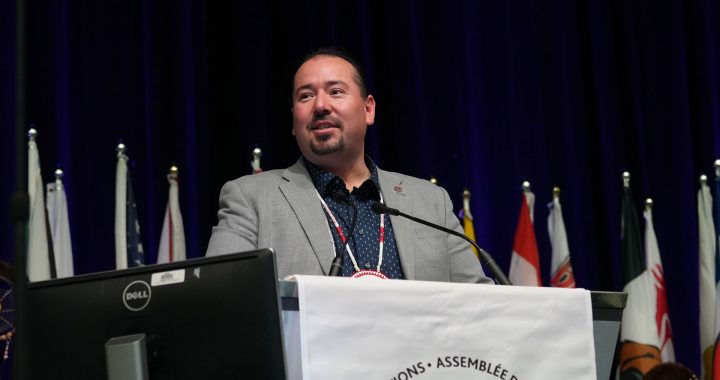
According to CMHC documents, the agency raised the issue of money allocation with Ottawa. Photo: APTN.
Canada’s Crown-Indigenous relations minister says Bill C-53, a proposed and controversial law that would allow Parliament to recognize and negotiate self government agreements with Métis in Ontario, Alberta and Saskatchewan is being put on hold.
Appearing at a Parliamentary committee on Dec. 9, Gary Anandasanagaree said that a court ruling struck down provisions of the proposed law along with the withdrawal of support from Métis-Nation Saskatchewan in April, made it unlikely to pass.
“I would reluctantly say that it is a bill that may be hard to continue in its current form,” Anandasangaree said.
The bill is not being withdrawn at this time, instead, a spokesperson said the minister is meeting with the heads of the Métis Nation of Ontario and Métis-Nation Alberta.
“We remain committed to continuing to work with MNA [Métis Nation of Alberta], MNO [Métis Nation of Ontario] and MN-S [Métis Nation Saskatchewan] on the next steps to advance their visions of self-determination and self-government,” the spokesperson said.
According to the government, the minister has also met with the head of the MNS but didn’t say whether more meetings were scheduled.
The bill was just studied by a House of Commons committee. It still had to go through the Senate before receiving Royal Assent and becoming law.
First Nations in Ontario vehemently opposed the bill saying the Métis had no historical rights to territory in the province.
“The Chiefs of Ontario have been opposing Bill C-53 since before it was introduced,” said Abram Benedict, grand chief of the Chiefs of Ontario in reaction to the news.
“We knew that legislation recognizing the Métis Nation of Ontario’s (MNO) alleged section 35 Aboriginal right to self-government would be eventually introduced as part of the MNO Self-Government Recognition and Implementation Agreement with Canada.”
Benedict said in the statement that First Nations in Ontario will “continue to call for Canada not to enter into any further agreements with MNO and cease all processes that would recognize section 35 until the MNO’s claims are independently verified.”
In a statement to APTN News, the MNO said it’s disappointed Anandasangaree commented that Bill C-53 is not moving forward but added a “legally binding Self-Government Agreement (SGA) with Canada guarantees that if this legislation is delayed, another bill will be introduced when the time is right. In the meantime, we are pressing ahead with our path to full self-government.
“This includes implementing the SGA, building our constitution, and continuing negotiations for a modern-day treaty with Canada ”
The MNA was equally disappointed and said Canada put it through a process that was “often unfair, delayed, disrespectful and demoralizing.”
“We would not be in this position today if Canada had historically and honourably recognized our people, communities, and governments,” said a statement from the MNA. “Reconciliation with the Métis is a constitutional imperative and our self-government agreements, legislative recognition, and the treaty we are negotiating with Canada is the only way forward.
“It is time for Canada to honour its commitments made to the Métis Nation within Alberta and we expect to see our updated agreement initialed without delay and that legislative hurdles to our own Self-Government Legislation are dealt with in a timely manner.
In November the Manitoba Métis Federation became the first Métis group with a modern treaty with Canada.










